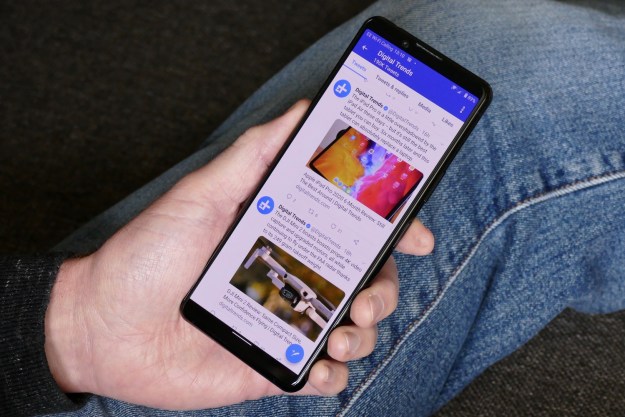 Common sense has prevailed in the UK High court today, as Paul Chambers won an appeal to overturn his 2010 conviction, where he was accused of sending a “message of menacing character” over an “electronic communications network.”
Common sense has prevailed in the UK High court today, as Paul Chambers won an appeal to overturn his 2010 conviction, where he was accused of sending a “message of menacing character” over an “electronic communications network.”
That network was the Internet, the medium was Twitter, and the menacing message was “ Cr*p! Robin Hood Airport is closed. You’ve got a week and a bit to get your sh*t together, otherwise I’m blowing the airport sky high!!”
His tweet went out to 600 followers, and his outburst was due to the unexpected closure of the Birmingham airport, which interrupted his plans to fly to Northern Ireland and visit his girlfriend.
A few days after his tweet, Mr. Chambers was arrested at his work by anti-terrorism police, who had been alerted to the “threat” following a chain of events that started with an employee at the airport discovering the tweet while searching online.
To their credit, the police realized the tweet was a joke and didn’t charge him, but the Crown Prosecution Service didn’t agree, and instead charged him with the aforementioned crime.
Conviction
Amazingly, Mr. Chambers was subsequently convicted in May 2010, and this was upheld again in November. As a result he lost his job, but gained a £2000/$3100 fine, a criminal record and the dubious honor of being one of the very first people to be prosecuted for a message sent over the Internet.
Now, two-and-a-half years later, Mr. Chambers’ lawyer, David Allen Green — who was granted permission to tweet from court — has confirmed that the appeal has been won, and the conviction overturned.
Chambers had amassed considerable support over the past few years from some high-profile Twitter users, including IT Crowd creator Graham Linehan, who after offering his congratulations tweeted “Taken 2 years for British judges to hear a definition of Twitter that they understand. Welcome to the 21st Century chaps.”
MP Louise Mensch, who recently started her own social network, added that it was “a shameful prosecution that should never have been brought.” Comedians Stephen Fry and Al Murray had accompanied Mr. Chambers to a previous hearing, as seen above with Chambers in the center.
Mr. Chambers has always maintained that the tweet was nothing more than a “silly joke,” and following this morning’s win, the BBC quotes him as saying “I am relieved, vindicated — it is ridiculous it ever got this far.”
Indeed it is. How a facetious tweet made under the author’s real name but with no specific recipient, containing ripe language and too many exclamation marks, that was evidently dismissed by almost everyone who saw it — including airport security and the police — became a terrorist threat worthy of conviction, is not only unfathomable, but as much of a joke as the tweet that started it all.
Editors' Recommendations
- No joke: Twitter is taking away your blue check on April 1, unless you pay
- Thanks to Tapbots’ Ivory app, I’m finally ready to ditch Twitter for good
- Edit Tweet feature is finally rolling out to Twitter Blue subscribers
- Instagram link previews have finally returned to Twitter
- Twitter finally enables tabbed option to toggle between home and latest tweets




